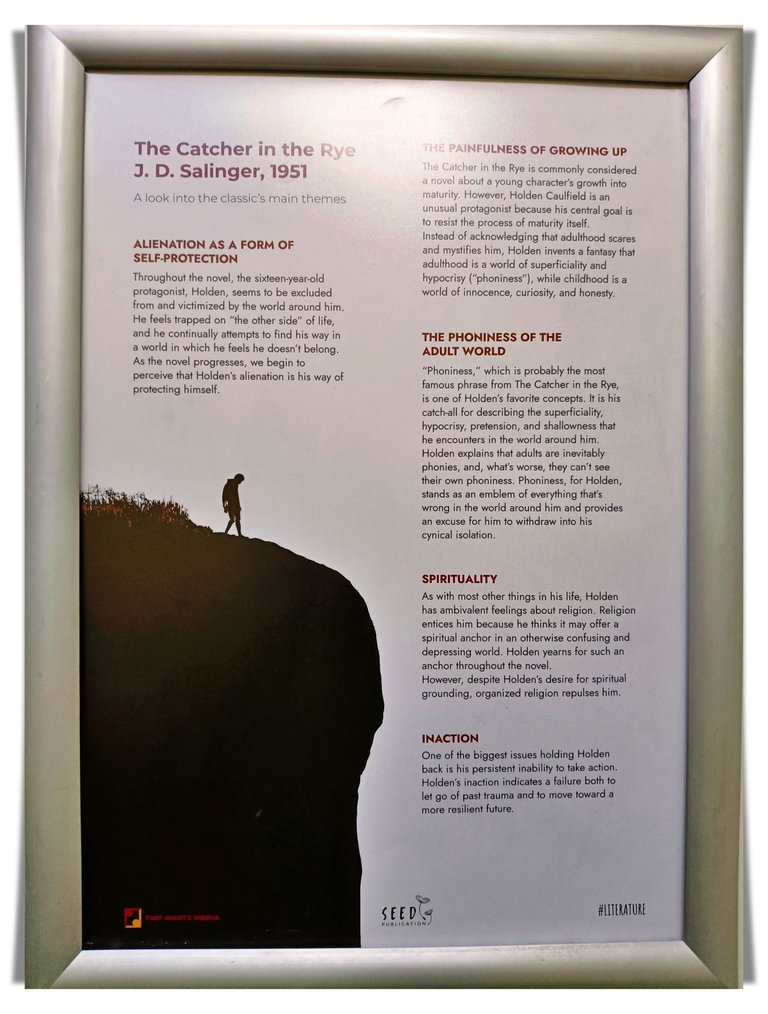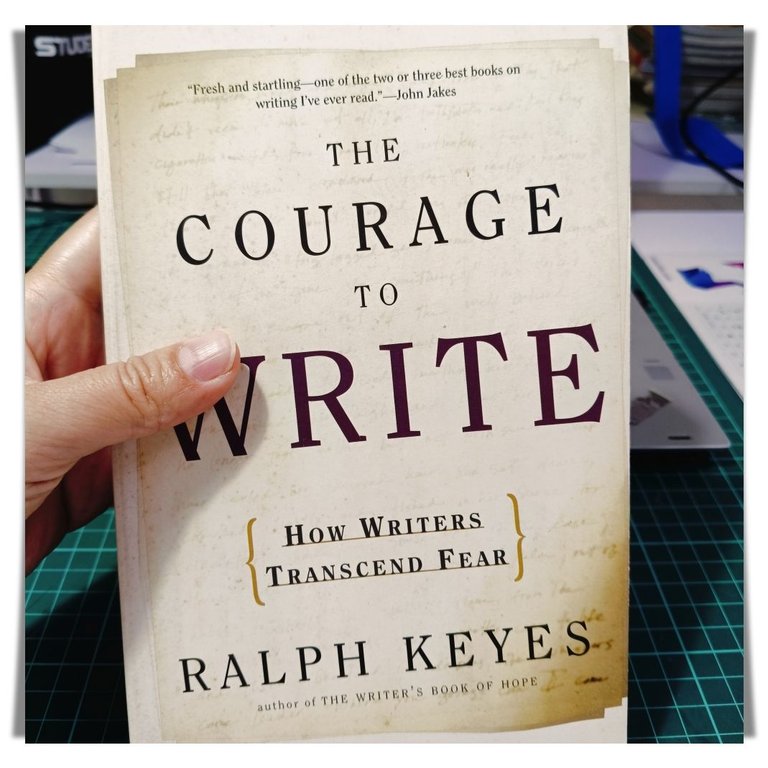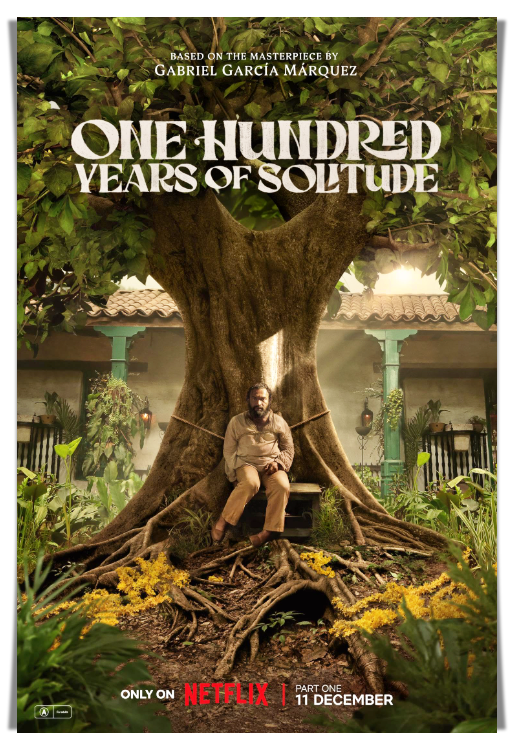There is a quiet power in stories that goes beyond entertainment and escapism. In its essence, literature is the act of giving voice to the intangible. It takes the raw material of our emotions, our hopes and fears, and our questions and shapes them into something we can hold and share. Stories are not just reflections of life but collections of meaning that carry the weight of human experience across time and space.
When I think about the power of literature, the first thing I notice is its capacity for connection. A book is like a bridge that allows us to see the world through someone else's eyes and to feel what they feel. In doing so, it dissolves the boundaries that divide us. Empathy reminds us of our shared humanity, allowing us to inhabit a perspective different from our own. Literature forces us to confront the idea that our experiences are echoes of something universal, regardless of how unique they feel. When I first read J.D. Salinger's Catcher in the Rye as a youth, it subtly transformed my view of human connection. Holden Caulfield's cynicism and vulnerability demonstrated how stories could mirror our deep yearning for understanding.

Literature is not just about understanding others but also about understanding ourselves. A story can act as a mirror that shows us truths we might otherwise avoid. It reflects our own fears and flaws, as well as our deepest desires. This is the paradox of reading: we lose ourselves in another world, only to find pieces of ourselves reflected back. The enduring power of literature lies in this duality—the simultaneous inward and outward journey. Salinger’s work also helped me see myself in unexpected ways. Holden's struggles with authenticity and alienation mirror my own questions about belonging and self-acceptance.
Stories are also immortal and have the ability to transcend time. The timeless quality of the written word means that the words of a long-dead author or a poet continue to resonate with modern readers. This does not mean that stories remain static. On the contrary, they evolve with each reading, shaped by the context and consciousness of the reader. What a text meant to its original audience may differ vastly from what it means to us now. A story is alive in the way it changes with us. Interpretations and reinterpretations across generations enrich it further. Consider the recent adaptation of Gabriel García Márquez’s One Hundred Years of Solitude, which debuted on Netflix in December 2024. While the novel's magical realism has captivated readers for decades, this adaptation breathes new life into the story. It invites a new generation of viewers to experience its themes of love, loss, and cyclical history through a fresh lens.
There is also an inherent bravery in the act of writing. A writer must take a bold step and trust that their words will resonate with someone and find a place in their hearts. Writers often expose parts of themselves they might not share in any other way. They embed pieces of their own truths in the plot of fiction or the rhythm of verse. This courage to write, as Ralph Keyes explores in his book, The Courage to Write, comes from a writer’s willingness to face insurmountable fears and self-doubts. Writing is a brave act because it requires the writer to be honest and vulnerable, even when the result is uncertain, rather than because it ensures fame or recognition. For readers, this vulnerability can be transformative. It creates a bond between the writer and the readers, fostering a mutual understanding that surpasses the written word.

Of course, not all stories are comforting. Some confront us with harsh realities and challenge our beliefs. Some force us to face uncomfortable truths. But even these stories have their place. The hallmark of enduring literature is that it does not shy away from complexity. It recognizes that beauty and pain—hope and despair—often coexist in life. Stories thus serve as instruments for facing life's complexities; they don't provide simple solutions but rather encourage us to reflect, ask questions, and evolve.
Stories have the capacity to establish continuity in a world that often appears fragmented. They remind us that we are a part of a broader story that began long ago and will continue even after our departure. Literature binds us to one another and to the vast, complex fabric of human experience, whether it be through an epic novel, a silent poetry, or even a single, powerful sentence.
When I think of why I write, I return to this belief that stories matter. They matter not because they make grand, dramatic changes to the world, but rather because they quietly and subtly alter us. They invite us to pause, contemplate, and feel. Indeed, this invitation represents a revolution in a world that often demands speed and certainty.
That's it for now. If you read this far, thank you. I appreciate it so much! Kindly give me a follow if you like my content. I mostly write about making art, life musing, and our mundane yet charming family life here in Klang Valley, Malaysia.
Note: All images used belong to me unless stated otherwise.


Excellent writing about what it means to write, I have always understood that writing for me has been a lifeline, a way to not fall into the abyss and maintain a spiritual struggle, very good exposition, thanks for sharing.
I'm really grateful for your kind words. I really appreciate how you talk about writing as a lifeline and a means to navigate spiritual struggles. It’s such a strong and relatable feeling. Writing really has this amazing way of keeping us grounded and helping us make sense of life's complexities. I'm really happy to hear that the piece connected with you, and I genuinely appreciate you sharing your thoughts!
I love how you highlight the power stories have to connect us and help us understand both others and ourselves. The way you talk about the duality of reading really resonates; it's fascinating how a book can be a mirror and a window at the same time. Great post!
Thank you so much for your comment! I'm really glad the duality of reading resonated with you; it's such a beautiful thing, isn't it? Books have this incredible way of reflecting our own experiences while also offering a glimpse into worlds and perspectives we might never have imagined. I'm happy you connected with that idea, it means a lot!
Beautifully said. It's why READING matters - arguably, you can still experience a story through film, but it's not the same.
Have you started 100 Years? As I'm a little bit scared to. That book is so precious to me, I'm afraid they'll destroy it.
Nope. I don't think I ever watch it. It won't be the same. Look at Harry Potter, The English Patient though I enjoyed Lord of the Rings, and Forrest Gump.
I liked The English Patient and didn't like the book!
Oh I'm the other way round lol. I love the book, read it like 10x throughout the years 😅
I just never gelled with that writer.
Sometimes the film and the book work well together - or the series. I really liked, for example, the TV series 'Station Eleven' which I believe captured the mood and feel of the book. Also 'Unbearable LIghtness of Being' - the movie didn't have the same ending, but still, it captured it and besides, young Daniel Day Lewis, amirite? :P Sometimes you walk away and think they uttered butchered it, or gah, what a waste of time - thinking, say, Louis De Bernieres Captain Corelli's Mandolin - the movie was forgettable, which was somewhat a blessing because I adored the book and didn't want something to overshadow it. Oh, and the TV series of Catch 22 - it wasn' the book, and people got annoyed they changed things, but I think it captured the insanity of the war machine really nicely. You have me thinking, now!
We should really consider giving some grace to the showmakers. Adapting a book into a movie can be quite the challenge, right? The differences in format and length between the two make it tricky, but it’s still an interesting process. Still, I really didn't like the English Patient movie at all; I was just so drawn in by the book instead. Michael Ondaatje's books can be very difficult to read, but I really enjoy them because his novels are filled with beautiful, lyrical prose. I'm a bit biased too since I definitely prefer reading over watching movies lol. However, I'm really glad there are movie adaptations out there! They help the stories connect with a lot more people, especially those who aren't into reading. It’s a win-win for everyone involved!
Discord Server.This post has been manually curated by @steemflow from Indiaunited community. Join us on our
Do you know that you can earn a passive income by delegating to @indiaunited. We share more than 100 % of the curation rewards with the delegators in the form of IUC tokens. HP delegators and IUC token holders also get upto 20% additional vote weight.
Here are some handy links for delegations: 100HP, 250HP, 500HP, 1000HP.
100% of the rewards from this comment goes to the curator for their manual curation efforts. Please encourage the curator @steemflow by upvoting this comment and support the community by voting the posts made by @indiaunited.
Thank you so much 🙏